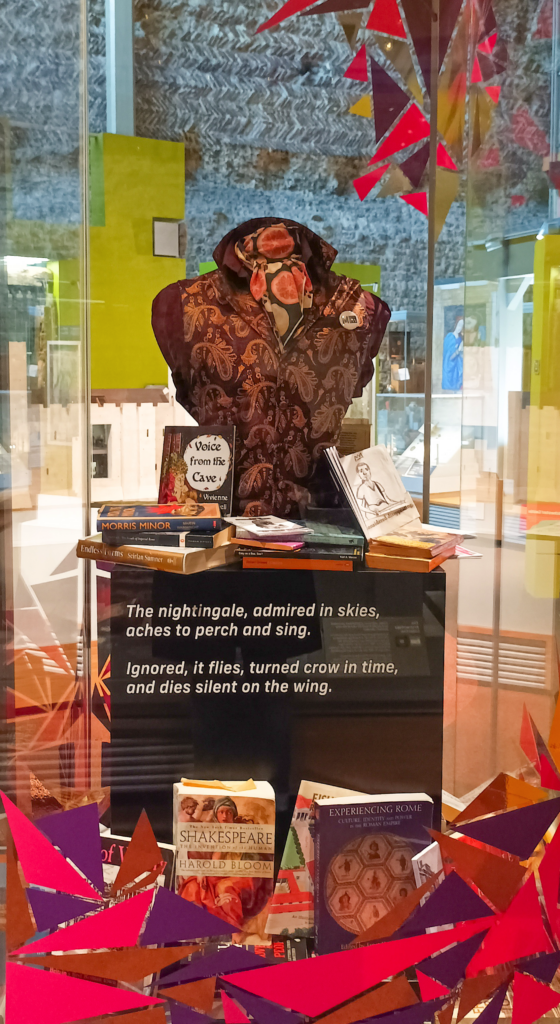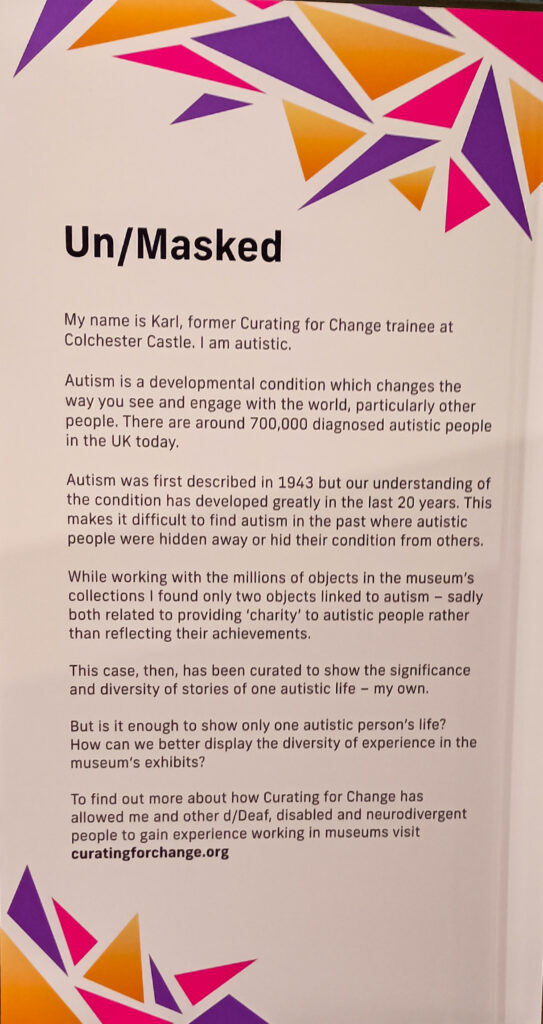
Karl Mercer was our Curating for Change Trainee at Colchester and Ipswich Museums and is Digital Content Producer for Curating for Change. In this blog he reflects on Autistic Pride Day; his search for histories of autism and neurodiversity during his placement, and the museum display he created to celebrate his own experiences.
June 18th marks Autistic Pride Day. It is a day for autistic people, by autistic people, which celebrates the wonderful neurodiverse community, their lives and their contributions to the world.
I know in the course of my everyday life it is very hard to be proud of something so many others see as a problem. It is hard to be proud of the thing that has seemingly held me back. It is hard to be proud of the thing that has profoundly affected my lived experience and opportunities. It is definitely hard to be proud of the thing that has me as a capable, competent 35 year old man, still sharing a council house with my mother. The world has made it very hard for me to be proud of who I am.
Two weeks before Autistic Pride Day I was removing my small museum display, Un/Masked. Much like Autistic Pride I wanted it to be an autistic-led celebration of life, achievement and existence. My display is now, like approximately 75-80% of the population of diagnosed adult autistics in the UK, under- or unemployed. It is now, like 75% of diagnosed adult autistics, living at home or with a family member.
Un/Masked came about because, while on placement at Colchester and Ipswich Museums for my Curating for Change Traineeship, I noticed there were so few objects or artefacts, in a catalogue of hundreds of thousands, relating to autism and neurodiversity.
In fact, there were only two. The entire neurodiverse lived experience was condensed into two objects – both related to autistic people receiving charity. Conversations with colleagues would suggest this is a likely pattern across the sector.

Autism and other neurotypes have likely existed throughout human history, but we must be careful not to retrospectively diagnose historical figures based upon limited artefacts and historiography. Autistic people have also been historically maginalised, their lives infantilised, the possibility for achievement limited and what achievements they have had minimalised or ignored.
It means autism and neurodivergence have little to no history. Our museum collections reflect that. Little, short-term, interventions are not good enough. Un/Masked, my brief provocation, may have made an impact, but it only lasted two months. We urgently need autistic collections to be improved, in the hands of autistic curators, and with interpretation from the autistic community.
But my lived experience, despite my significant achievements in such a short period of time as a Curating for Change Trainee, still make me untouchable to a sector dominated by people with very similar academic achievements and backgrounds. Until the sector is brave enough to value the lived experience and accomplishments of people like me, things will never be any different.
This is what Curating for Change seeks to address, not just for autism but for all disabled people. We are the provocation that says it’s not enough for your organisation to piggyback on a hashtag. You need to be allowing autistic people to lead in your organisation.
I am proud to represent Curating for Change and be a voice for that change in the sector.
I am proud to be autistic.






